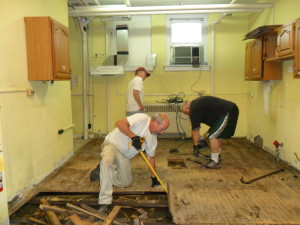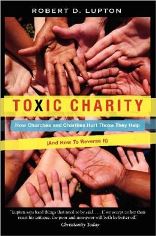Peter looked intently at him, as did John, and said, “Look at us.” And he fixed his attention on them, expecting to receive something from them. But Peter said, “I have no silver or gold, but what I have I give you; in the name of Jesus Christ of Nazareth, stand up and walk.” And he took him by the right hand and raised him up; and immediately his feet and ankles were made strong. (Acts 3:4-6)
In the follow up to his gospel, Luke goes to great lengths to show how the Holy Spirit is given to the apostles and what this gift means for their ministry and the life of the early believers. Implicit in the purpose of Acts, so it seems, is the apostles’ faithful witness to the person of Jesus and God’s gift of the Holy Spirit that enables their activity and mission. The ministry of Jesus is left in their hands. In other words, you can smell this healing story coming from a mile away. At the risk of simplifying the matter, the arc of a healing story can be understood as follows: problem—solution—proof.
The problem is realized as the scene opens on a man who is carried to church (I’m contextualizing here) by some faithful friends every day. As worshipers file past, the man at the gate collects whatever alms they can spare. The people go in to become the worshiping body, the man stays at the gate. Enter Peter and John.
After a stare from each of them (I wonder how awkward that was), the Spirit moves Peter and John to do something more than give money. If they did have silver or gold, Luke probably would have told us they gave that as well. The healing/solution works well for Luke’s purposes, but it leaves us with a question: “If we’ve been given the Holy Spirit, why can’t it be this easy for us?” Why aren’t lives healed or made new with a simple command? Why isn’t poverty solved with a job? Why isn’t more food, money, or help enough? The man walks – leaps for joy even – and praises God, but in a way he is getting ready for healing of another kind.
The final step of the healing is the proof, which we read in verse 10: “and they recognized him as the one who used to sit and ask for alms at the Beautiful Gate of the temple…” This confirms the healing act of the apostles, but I almost wish Luke, the author of the gospel story where the dinner host orders the servant to invite the poor, crippled, blind and lame (Luke 14:21) would have emphasized the other drama that unfolds here. Something like: “and he recognized them as the ones who passed him by at the gate of the temple as they went on to pray.”
The healing story is the introduction to another chapter not written in the book of Acts. It is a chapter that begins as the crowd disperses from Solomon’s Portico and the man walks away for the first time. Just as he has to learn what it is like to walk, he also has to confront his feelings that come from knowing what it is like to be passed by your whole life. Meanwhile, the rest of the community has to come to terms with the likelihood that their response to the man’s previous condition affects any relationship with him from here on out. The man and the community have to learn how to walk together in a new relationship, one that requires a different kind of healing, though nonetheless guided by the spirit.
In one way it looks like Peter and John just went in and fixed the man (and this isn’t Luke’s fault). But in another way we begin to see that God’s healing spirit is also needed as we stumble through the relationships we have with one another. Only by the work of the spirit are we able to recognize the barriers in our midst that before looked as innocent as gates.
Henry Martinez is an education associate with ELCA World Hunger.



 captures this divide in writing that is perceptive and prophetic, even if not always persuasive. Lupton tells of the church in Mexico that was painted six times by six groups one summer, the gift-giving program that left the fathers of children feeling emasculated and inadequate, and the tile floor in a Cuban seminary that was inexpertly laid by novice volunteers as skilled local laborers were left without work.
captures this divide in writing that is perceptive and prophetic, even if not always persuasive. Lupton tells of the church in Mexico that was painted six times by six groups one summer, the gift-giving program that left the fathers of children feeling emasculated and inadequate, and the tile floor in a Cuban seminary that was inexpertly laid by novice volunteers as skilled local laborers were left without work.

